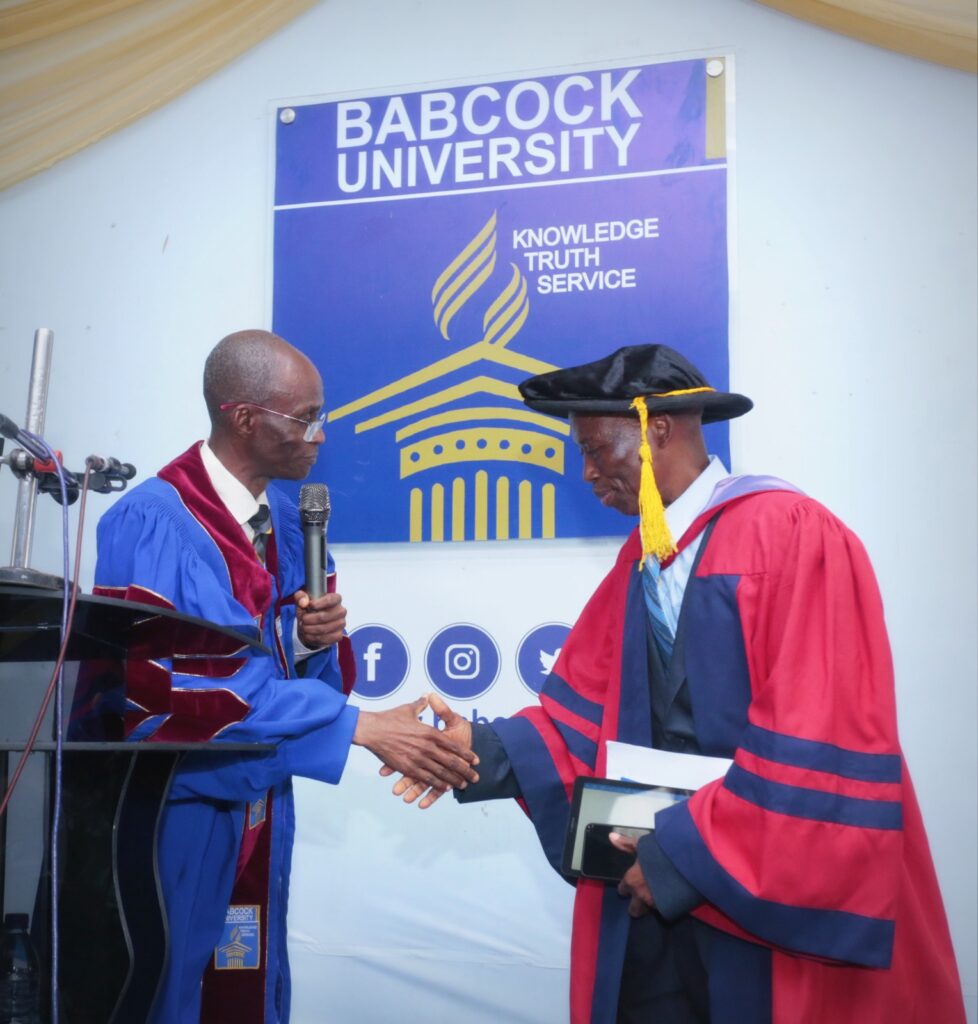African churches have been challenged to urgently confront what has been described as an epidemic of “toxic doctrines and twisted morals” undermining the continent’s ethical foundation and spiritual health.
This call was made by Pastor and Babcock University faculty, Prof. Efe Ehioghae, while delivering the institution’s 55th inaugural lecture titled “Toxic Beliefs, Twisted Morals: The Urgency of Theological Detox in a Morally Disoriented Age.”
Prof. Ehioghae warned that unless African Christianity courageously resists cultural conformity and false teachings, society risks sinking deeper into moral chaos.
He argued that faith communities and the larger society need what he termed a “divine detox” from “wrong-headed beliefs and decaffeinated morals” in order to recalibrate the continent’s ethical compass.
“Theological detox is not a rejection of faith but a return to its authentic core — that truth convicts, liberates and transforms,” he declared.
The scholar, who is also a pastor, placed responsibility on the church to reclaim its prophetic voice, especially in the face of political corruption, ethnic violence and exploitation. He insisted that silence by religious leaders only normalizes moral confusion.
According to him, reform must begin from the pulpits and seminaries, stressing that Christian leadership should be accountable, servant-oriented and modeled after Christ’s humility.
“Only a renewed mind and purified theology can heal a fractured world and restore the moral integrity of the church,” he said.
He urged churches to revise their curricula to emphasize sound biblical interpretation, contextual theology, and ethics rooted in Christ’s life, describing these as crucial to reversing Africa’s growing moral decline.
Prof. Ehioghae also called for grassroots theological literacy, integration of ethics into evangelism, and intergenerational moral mentorship.
He strongly criticized prosperity preaching and the idolization of religious leaders, saying such practices enable manipulation and fuel the spread of toxic doctrines.
He further emphasized that African theology must go beyond pulpit preaching and academic debates to engage public policy, environmental stewardship, justice, and governance, thereby shaping public conscience and societal transformation.
“Theology must not remain a private or purely academic affair. It must actively shape governance, guide public morality and promote holistic transformation rooted in African realities,” he stressed.
Do you want to share a story with us? Do you want to advertise with us? Do you need publicity for a product, service, or event? Contact us on WhatsApp +2348183319097 Email: platformtimes@gmail.com
We are committed to impactful investigative journalism for human interest and social justice. Your donation will help us tell more stories. Kindly donate any amount HERE




